Year’s end: The best of the Garden in 2024.
Happy New Year! Here are what I think are the best articles from this blog from 2024.
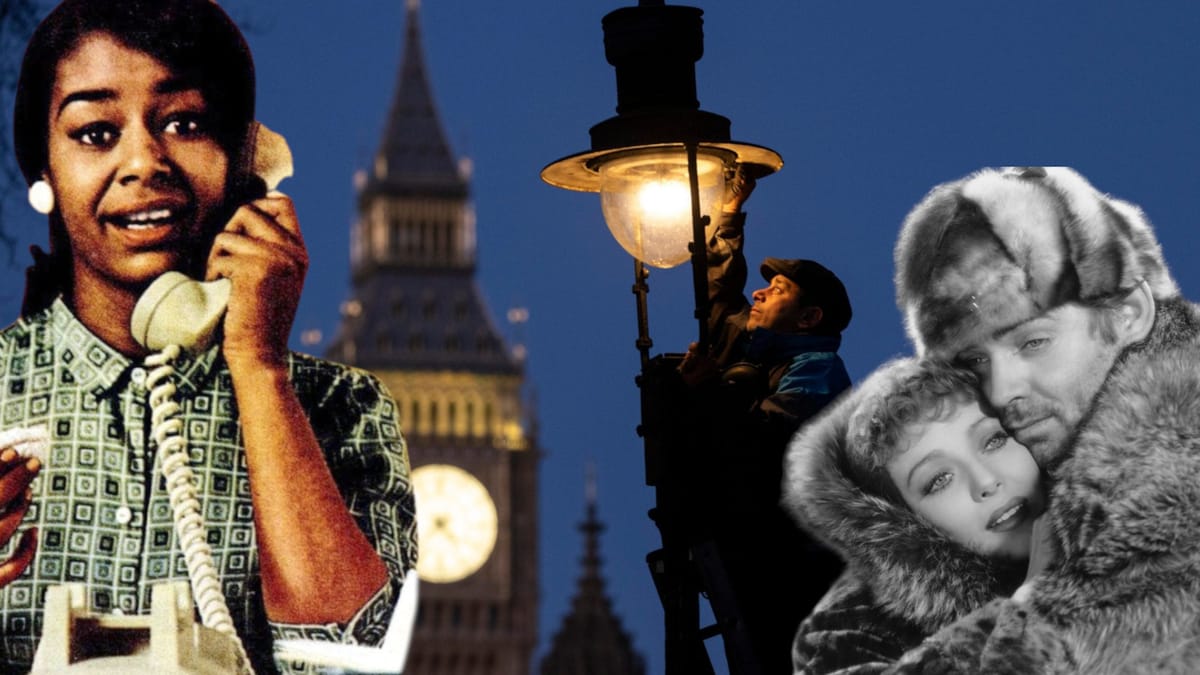
Another year is gone. This is the second year of the existence of the Garden of Memory blog—the first full calendar year, though 2023 was almost one, as it began in January—and it’s been a terrific one. The number of members signed up for the blog more than doubled this year. I’m grateful for the support, whether it’s financial or not, and this blog is finally starting to become more of a community than it ever has before. So, thank you, and happy New Year, above all. But, as I did last year, I thought it was appropriate on New Year’s Eve to take a look back at where we’ve been in the past 12 months.
Believe it or not, I don’t even keep track of readership statistics. The ten articles showcased here from 2024 are not chosen by readership or popularity—I have no idea whether the most-read article of the year is among them, or the least. But these are the pieces I’ve done in 2024 that I think come the closest to fulfilling whatever nebulously-defined idea I have in my head of what I’d ideally like this place to be. I still have a long way to go to reach that ideal, if I ever do; and there are a few things I may do differently in the coming year. Nevertheless, here are the articles I think are my best from 2024, listed in chronological order.

Free history books! The mysterious murder in the library (Jan. 9)
In November 1969, a young woman named Betty Aardsma was fatally stabbed in the stacks of the Penn State University Library, for reasons unknown. Her murderer was never apprehended. This was one of the most baffling unsolved murders in American history, because Betty was a perfectly upstanding young lady who had no enemies. Her killing seemed essentially random, yet the clues indicated it was somehow purposeful. In this article, I profiled the case, and a book I read called Murder in the Stacks, published in 2014, whose author, one David DeKok, I believe solved the case. If you choose to read this book, you’re in for one of the most gripping true crime stories you’ve ever seen, and I thought this made a banger of an article.
This article is also bittersweet for me. When I started this blog, I anticipated that “Free History Books,” each article profiling another interesting book I’d found that was borrowable for free on Archive.org, would be a mainstay category. Unfortunately it has not been, because greedy book publishers sued Archive to take down the vast majority of their catalog—a legal case that wound its way to various levels of higher American courts. It broke my heart that the courts ultimately allowed the greedy publishers to prevail. You have not seen many “Free History Books” posts on this blog since January, and sadly you won’t in the future.

X'ed from history: why my generation will mostly be forgotten (Feb. 8)
I am Generation X, born in the 1970s. I’ve begun to notice, much more lately, that my generation has contributed virtually nothing to the world. We X’ers are sandwiched between the Baby Boomers, who have from birth believed the world was built for them exclusively, and the Millennials, who are seeking to undo the legacy of the Boomers as fast as possible. Between those epic forces of history, my generation has no chance. In this admittedly angsty article I explained why we X’ers deserve to be erased and forgotten. We were told all our lives that we were worthless and incompetent. No one should be surprised that we internalized those messages, and that we decided yes, in fact, we are exactly as worthless and incompetent as our elders said we were. Yes, this article has a touch of bitterness about it, but I do think it’s one of my better ones from this year.

Putin's endgame: what he's waiting for, and why he might get it (Apr. 9)
I sometimes refer facetiously to my “friend” Vladimir Putin. That’s mainly because I know a bit more about him than most people do; my online class (from 2021) and my in-depth video about him (from this year) are an attempt to transmit what I’ve learned. In this article I tried to take stock of where Putin is going in 2024 and beyond. The coming year will see if I’m correct. My central thesis in this article from April was that Putin was throwing the dice that the American electorate would bail him out of his previously unwinnable war of aggression against Ukraine. Now, post-November, Putin’s gamble seems like a prescient one. As Ukraine crumbles and the Russian dictator sets his sights on additional European countries, we’ll begin to see how the final stage of Putin’s oppressive rule will turn out. I didn’t think it would be pretty back in April, and I think even less so now.
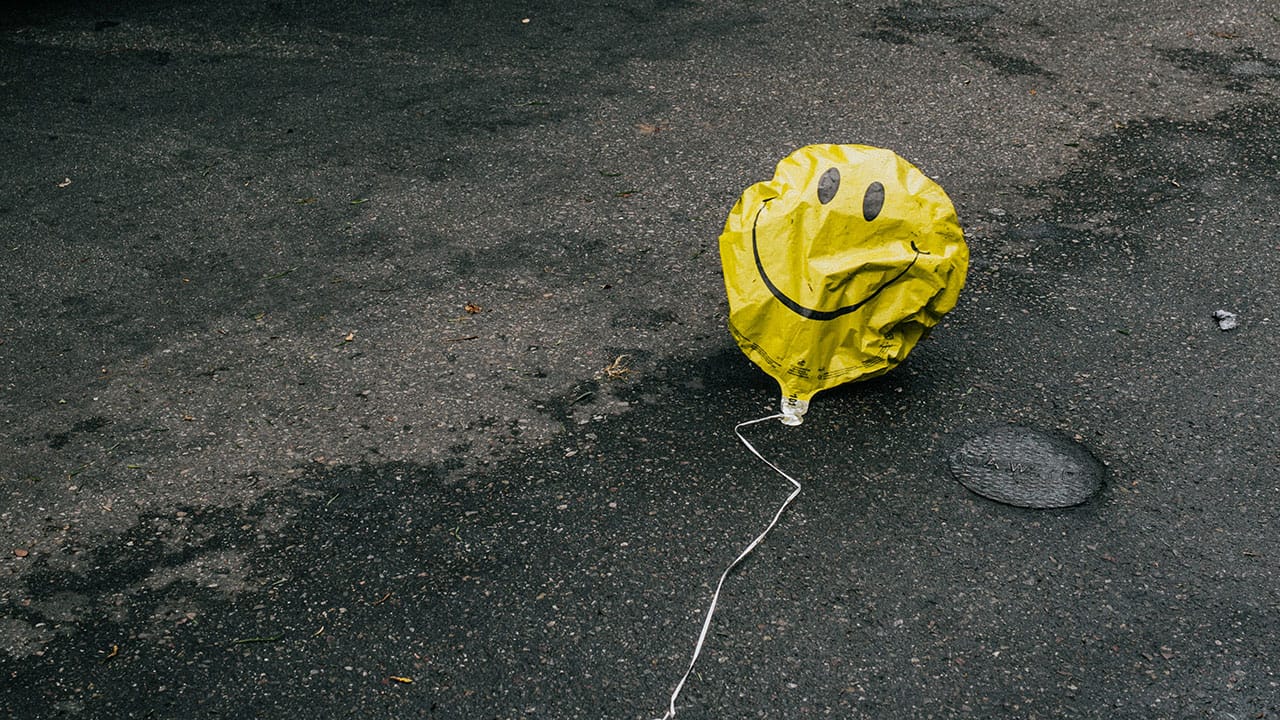
Is history disappointing? Or is it just me? (Apr. 14)
Since my YouTube channel has become prominent, I’ve received a lot of communications from a lot of people I’ve never heard of before. Many times—more and more often, it seems—they ask me for something I can’t give them, and they go away from interactions with me invariably disappointed. In this article from the spring I tried to parse out why. History often doesn’t fulfill people’s expectations of it, and not many people have a strong sense of what historians actually do. Thus, there’s a lot of potential for miscommunication and disappointment. I’m a flawed guy in an imperfect profession. That was my conclusion from writing this article.
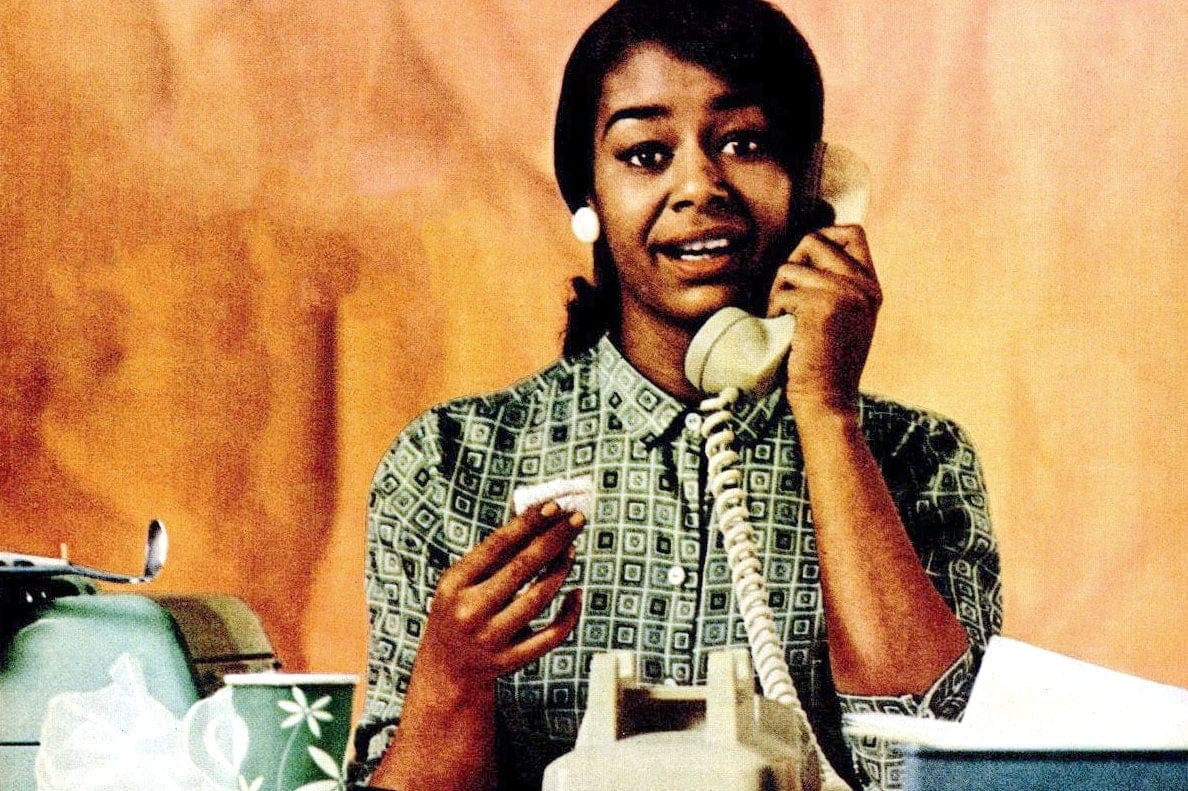
Last call: how the telephone died as a cultural object (Apr. 25)
There are a lot of things I don’t like about the 21st century, which is now nearly a quarter over, but the death of the telephone is one thing I very much do like about it. I’ve always hated the telephone. Growing up in a time when cultural expectations meant that you were basically obligated to answer its ring even without knowing who was calling you always seemed strange to me. Thanks to the ubiquity of spam calls and telemarketers, that cultural expectation is now largely dead. As I ruminated in this article, I haven’t even heard my phone’s ringtone in years because it’s always on silent. This article also contains a brief description of a really terrible Joan Crawford film from 1965 that got me thinking about it. This was one of the more fun articles to write in 2024.

Donald Trump is insane. Why isn't this a bigger issue? (May 22)
I quite predictably took some heat for writing this article back in May, but now, eight months later, I stand by every word of it. That Trump suffers from a severely debilitating mental illness is plainly evident from his statements, his behavior, and his diagnoses by various experts including his niece, Mary Trump, a practicing psychiatrist. The fact that the American public elected a literal lunatic to a second term as President of the United States now makes his delusions everyone else’s problem, and we will all pay dearly for it in the years to come. What I can’t fathom is why his insanity wasn’t the central issue of the campaign. I seem to have had too much faith in the political and constitutional backstops of our system, all of which have utterly failed us. If you hated this article, good news: I probably won’t be doing many more like it in the months or years to come. But that doesn’t mean it wasn’t one of my better ones for 2024.

The weekend I spent getting punished by global warming (June 1)
On Memorial Day weekend, my nephew, age 18, graduated high school. What was supposed to be a simple and straightforward trip to see him for this event turned into a grueling ordeal fueled by the world’s biggest and most urgent problem: human-caused global warming. Nearly everything that happened to me on that trip was somehow touched by this immense unfolding disaster, and yet almost nowhere did I hear of it being discussed in any serious fashion. Climate change is coming for us all, and it doesn’t give a damn whether you “believe in it” or not. This was another article with a sour undertone (as was another I did in October), but I felt I had to say it, and I’m glad I did.

The lamps that went out: My yearly thoughts on the outbreak of World War I (Aug. 5)
World War I has always been a prominent subject on this blog. On the 120th anniversary of its beginning I wrote about it again, focusing on the famous quote by UK Foreign Secretary Edward Grey, uttered on the last night of peace as the world spun toward its greatest catastrophe up to that time. This is an article I remember principally because of the process of writing it. It was late on a Sunday night (it was published the next day), very warm, with windows open and the crickets chirping in a peaceful rhythm. There must have been many comparable scenes like that in many places on August 4, 1914. But here are my thoughts again on that terrible anniversary, with reference to catastrophes we may be facing in our own future—global warming being one of them.
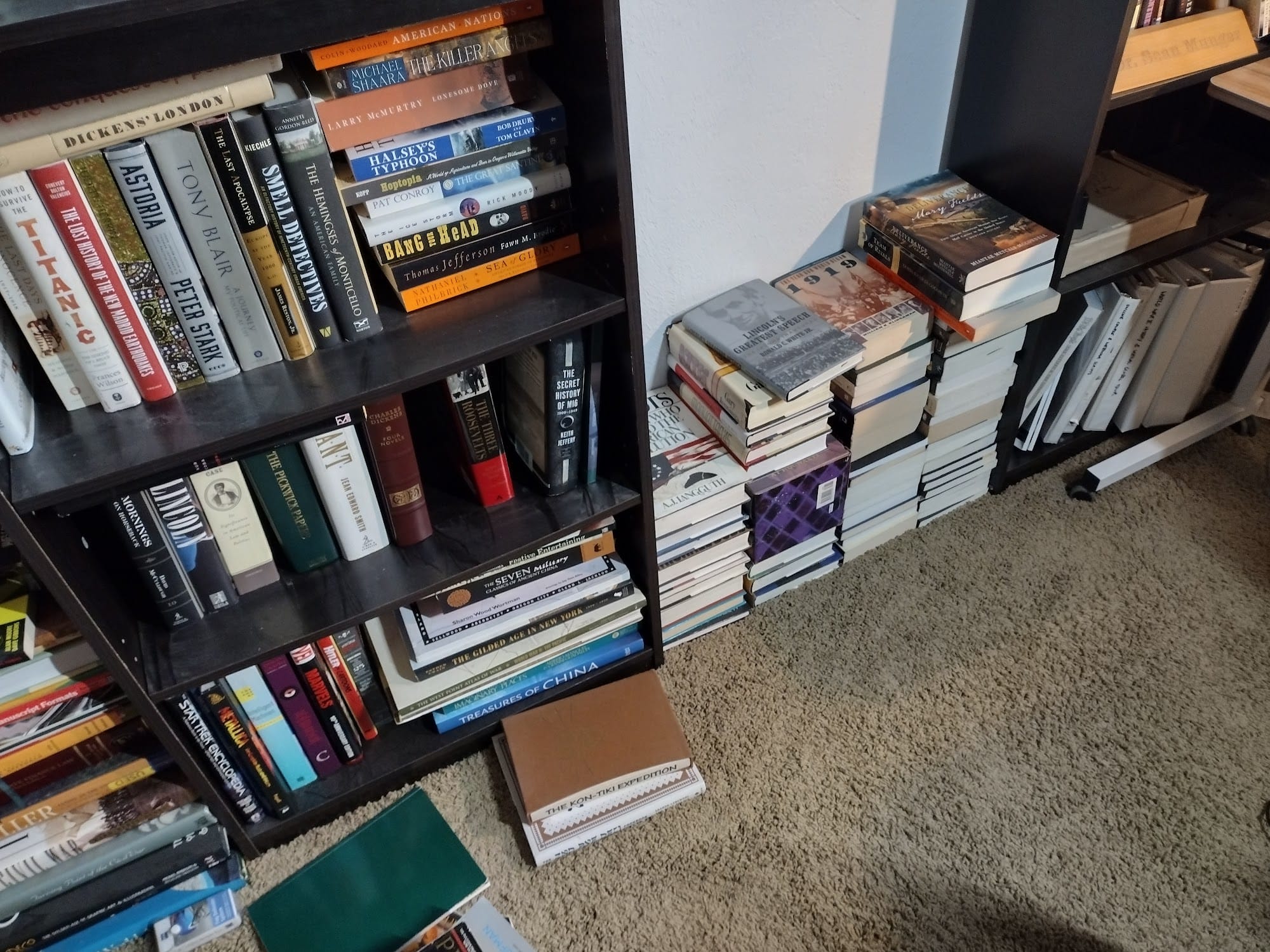
Living Purposefully With Books (Nov. 20)
November 2024 was a very busy and stressful month for me, not least of which because I was moving residences after being 5½ years in the same place. That was the occasion to write this article, about my process of parsing down my unwieldy large book collection. The central problem for bibliophiles is that our society makes it far easier to acquire books than to get rid of them. In this article I ruminated on the process of making choices on what to keep, what to recycle (or give away), and why. This was probably my most personal article during this past year.
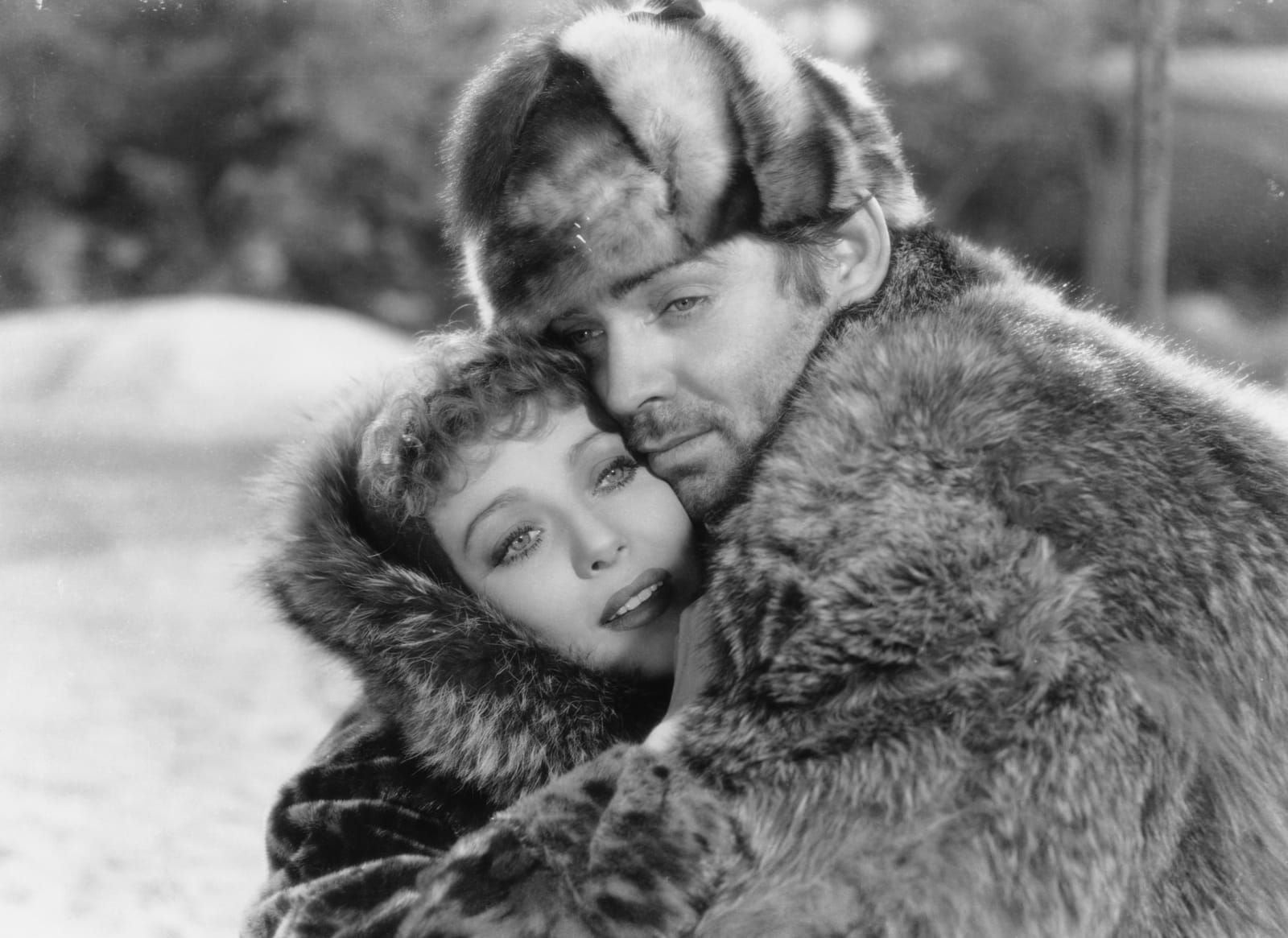
That happened one night: Clark Gable’s monstrous secret (Dec. 5)
On one of the last nights in our old apartment I re-watched the classic 1934 Frank Capra film It Happened One Night, starring Clark Gable. That got me thinking, and reading, about a terrible thing I learned about Gable: how, one night back in February 1935, he raped actress Loretta Young, leaving her pregnant with a child who grew up her entire life in the shadow of this act. I do write about movies on this blog and thus Hollywood history does come up from time to time, but this was a fairly unique departure for me. It goes beyond the oft-debated issue of what to do with the art of monstrous men. What do we do to listen to the voices of women who are so often silenced by them, as Loretta Young was? This was not a fun article to write, but I like the way it came out.
Thank you so much for reading the Garden in 2024 and being a part of this community. Whatever twists and turns of history 2025 brings us, I hope you’ll continue reading. Best wishes to you in the new year.
The Value Proposition
Why should you be reading this blog, or receiving it as a newsletter? This is why.
☕ If you appreciate what I do, buy me a virtual coffee from time-to-time to support my work. I know it seems small, but it truly helps.
📖 You could also buy my newest book.
🎓 Like learning? Find out what courses I’m currently offering at my website.
📽 More the visual type? Here is my YouTube channel with tons of free history videos.



Comments ()